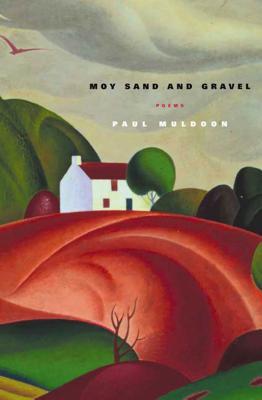Paul Muldoon's ninth collection of poems, his first since Hay (1998), finds him working a rich vein that extends from the rivery, apple-heavy County Armagh of the 1950s, in which he was brought up, to suburban New Jersey, on the banks of a canal dug by Irish navvies, where he now lives. Grounded, glistening, as gritty as they are graceful, these poems seem capable of taking in almost anything, and anybody, be it a Tuareg glimpsed on the Irish border, Bessie Smith, Marilyn Monroe, Queen Elizabeth I, a hunted hare, William Tell, William Butler Yeats, Sitting Bull, Ted Hughes, an otter, a fox, Mr. and Mrs. Stanley Joscelyne, un unearthed pit pony, a loaf of bread, an outhouse, a killdeer, Oscar Wilde, or a flock of redknots. At the heart of the book is an elegy for a miscarried child, and that elegiac tone predominates, particularly in the elegant remaking of Yeats's "A Prayer for My Daughter" with which the book concludes, where a welter of traffic signs and slogans, along with the spirits of admen, hardware storekeepers, flimflammers, fixers, and other forebears, are borne along by a hurricane-swollen canal, and private grief coincides with some of the gravest matter of our age.
Moy Sand and Gravel is the winner of the 2003 Pulitzer Prize for Poetry.
Paul Muldoon's ninth collection of poems, his first since Hay (1998), finds him working a rich vein that extends from the rivery, apple-heavy County Armagh of the 1950s, in which he was brought up, to suburban New Jersey, on the banks of a canal dug by Irish navvies, where he now lives. Grounded, glistening, as gritty as they are graceful, these poems seem capable of taking in almost anything, and anybody, be it a Tuareg glimpsed on the Irish border, Bessie Smith, Marilyn Monroe, Queen Elizabeth I, a hunted hare, William Tell, William Butler Yeats, Sitting Bull, Ted Hughes, an otter, a fox, Mr. and Mrs. Stanley Joscelyne, un unearthed pit pony, a loaf of bread, an outhouse, a killdeer, Oscar Wilde, or a flock of redknots. At the heart of the book is an elegy for a miscarried child, and that elegiac tone predominates, particularly in the elegant remaking of Yeats's "A Prayer for My Daughter" with which the book concludes, where a welter of traffic signs and slogans, along with the spirits of admen, hardware storekeepers, flimflammers, fixers, and other forebears, are borne along by a hurricane-swollen canal, and private grief coincides with some of the gravest matter of our age.
Moy Sand and Gravel is the winner of the 2003 Pulitzer Prize for Poetry.